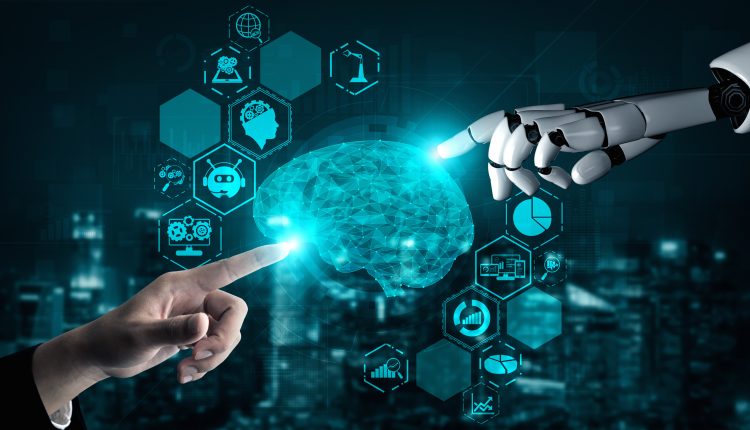Artificial Intelligence
What is Artificial Intelligence (AI)?

Definition:
“Artificial Intelligence (AI)” in the realm of technology refers to the development of computer systems that can perform tasks that typically require human intelligence. AI involves the creation of algorithms and models that enable machines to learn from data, adapt to changing situations, and execute tasks ranging from problem-solving to natural language understanding.
Analogy:
Think of AI as a virtual assistant capable of understanding and responding to your commands. Similar to how a human assistant adapts to your preferences over time, AI systems learn and evolve based on the data they process. They can analyze patterns, make predictions, and execute tasks without explicit programming for each step, much like a skilled human assistant.
Further Description:
AI encompasses various subfields, including machine learning, natural language processing, and computer vision. Machine learning, a core component of AI, enables systems to learn from experience by analyzing data patterns. Natural language processing empowers machines to understand and respond to human language, while computer vision allows them to interpret visual information. AI applications range from virtual assistants and recommendation systems to autonomous vehicles and advanced analytics.
Why is AI Important?
AI holds significant importance in the modern technological landscape as it enhances automation, decision-making, and problem-solving capabilities. By leveraging AI, machines can process vast amounts of data, recognize complex patterns, and adapt to changing conditions. AI applications contribute to advancements in fields such as healthcare, finance, and manufacturing, offering solutions to intricate challenges.
Examples and Usage:
Virtual Assistants: AI-powered virtual assistants like Siri and Alexa understand and respond to natural language, providing information and performing tasks.
Recommendation Systems: Platforms like Netflix and Amazon use AI algorithms to analyze user preferences and recommend relevant content or products.
Autonomous Vehicles: AI enables self-driving cars to interpret their surroundings, make decisions, and navigate safely.
Fraud Detection: AI algorithms in the finance industry analyze transaction patterns to detect and prevent fraudulent activities.
Basically, AI serves as the foundation for creating intelligent systems that can learn, adapt, and perform tasks without explicit programming for each step. The applications and capabilities of AI continue to evolve, driven by advancements in machine learning and related technologies.
For example, while a machine learning model may analyze historical data to predict future trends, a natural language processing system may understand and generate human-like text based on contextual input.
Key Takeaways:
- Artificial Intelligence (AI) involves developing computer systems with human-like intelligence to perform various tasks.
- AI encompasses subfields such as machine learning, natural language processing, and computer vision.
- AI applications include virtual assistants, recommendation systems, autonomous vehicles, and fraud detection.
- AI enhances automation, decision-making, and problem-solving capabilities across diverse industries.




